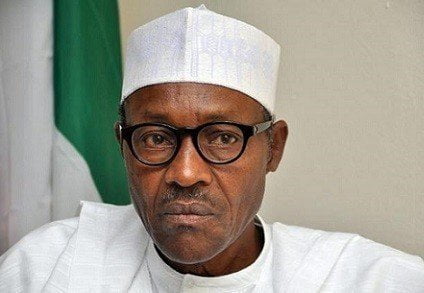THE Federal Government has suspended loan deductions from the Federation Account, to enable state governments to meet up with their salary obligations, in a move government says will stimulate the economy.
Briefing State House corespondents after a meeting of the National Economic Council (NEC), presided over by Vice-President Yemi Osinbajo, at the Presidential Villa, Abuja, on Thursday, the Minister of Finance, Mrs Kemi Adeosun, said government wanted to make more money available to the states, because it realised it could not run the economy on austerity measures.
She said the deferral was for one month in the first instance, but the Federal Government had now requested state governments to provide their financial profiles, to enable it to determine how long it would continue to support the states.
Insisting that it was not a bailout, the minister said the state government needed to have more money because they were the highest employers of labour.
“The approval I have is for the current month, but with the proviso. What we discussed is that the current situation in the economy requires some actions and what we need to do is to understand the financial profile of states in detail, so that we can understand how long we need to support them with loan deferrals,” she said.
Asked about the possible consequences of the deferrals on the economy, she said “I think I will switch to say what is the effect of non-payment of salaries on the economy? That, for us, is really the issue. We have go to put money into people’s pocket, so that they start spending just to get the economy moving.
“Nobody stimulates the economy by austerity but by spending. So, in some states, as you know, the state government is the highest employer of labour. So, if the state government is unable to pay, nothing happens.
“We have prioritised getting the states back into good financial health. Now, part of that is this commitment to fiscal sustainability and that is why we have asked the states to commit to cleansing their payroll, commit to efficiency and maximising their internally generated revenue.
“We have asked them to give us their financial data so that we can work together to create financial module and understand what government needs to do to support the states.”
The minister revealed that that Federal Government had continued to borrow to support the states, but it wanted guarantee of fiscal discipline to enable it to continue to provide such support.
“Of-course, we are borrowing, but we have got to make sure that we are borrowing to support the states that are fiscally sensible and prudent in their money management.
“So, the answer is we have a month guaranteed, but we are asking for information from states to enable us to build a module so that we would know if it is three months, six months or how many months to supplement the shortfall to ensure that within reasonable parameters, majority of states can pay salaries and that is taking into account that different states have different obligations and different profiles. The idea is to support them to be able to pay,” she added.
Joined at the briefing by Governor Tanko al-Makura of Nasarawa state and the Corps Marshal of the Federal Road Safety Corps, Boboye Oyeyemi, Adeosun revealed that she presented to NEC, a report on the balance of Excess Crude Account, which she said stood at $2.3 billion.
She also told newsmen that she provided the second update on the constitution of a search committee on the board of the Nigerian Sovereign Investment Authority (NSIA) and nominated six people from the geopolitical zones, four men and two women, who will search for the board members.
The minister stated that the council extensively discussed the current financial situation of the country and noted that, currently the Federation Account receipt was among the lowest “that has been seen in recent history.”
According to her, “we are looking at N299 billion this month and that is because of the very low oil prices that was recorded in January and February.
“If you remember oil prices went as low as $28 and $31 and, of course, that has led to a very low Federation Account as a result of which I approached the president and the governors that we defer the loan deductions from the federation account entitlement.”
In his remark, Al-Makura said NEC also deliberated on the issue of power in the country and resolved to reconstitute the Board of the Niger Delta, Power Holding Company (NDPHC).
According to him, “there was a unanimous acceptance of the recommendations and reconstitution of the board, to include one governor from each of the six geopolitical zones.
“For the North Central Zone, we have Plateau to represent: for the North East zone, we have Adamawa governor; North West, we have Kebbi governor; South East, we have Anambra; South West, we have Lagos and South South, we have Edo. The committee has since been inaugurated by the Vice-President.”
He said the council also discussed the bailout to states with the CBN Governor, Godwin Emefiele, giving an update about “those states that have been able to access the bailout and which is put at about N689.5 billion.”
Boboye Oyeyemi, in his contribution, disclosed that NEC approved the Nigerian Road Safety Strategy document of 2014-2018 to address “the current overlaps, streamline the roles and responsibilities of all participants in order to maximise the benefits of investments in road safety management activities.”
In a statement released by the Ministry of Finance after the NEC meeting, the ministry said the debt repayment deferral was not a bailout, but a responsive measure by the Federal Government.
“The FAAC meeting which took place yesterday (Thursday), presented the lowest FAAC in over five years, with less than N300 billion in revenue driven by the impact of the historically low oil prices in January and February. This sum also reflects a seasonally low collection period for the Federal Inland Revenue Service (FIRS).
“With about 27 states currently experiencing challenges meeting their salary payments and in response to the above, obligatory repayments due to the Federal Government from the states in respect of their restructured loan obligations are being deferred for the current month.
“The deferral amounts to a total of N10.9 billion. This is to ensure that the states are in a better position to meet their salary obligations. We are not able to guarantee that all states will be able to meet their salary obligations, as each state’s situation is dependent on its own cost profile and other obligations it may have, but this initiative is to better position them to do so.
“All states will receive the relief this month, however, further deferrals will be subject to the agreement of a Fiscal Restructuring Plan to be prepared by each state with clear measurable objectives.
“The Federal Ministry of Finance is keen to ensure that the programme of financial discipline being driven by the Federal Government is replicated in all tiers of government, including elimination of payroll fraud and increased spending efficiencies in overhead. Enhanced financial transparency by the publication of audited accounts and submission of debt profile may also be required.
“Moving states towards fiscally sustainable practices is a key objective of the Federal Government to ensure that Nigeria recovers from the current economic challenges,” the statement read.









